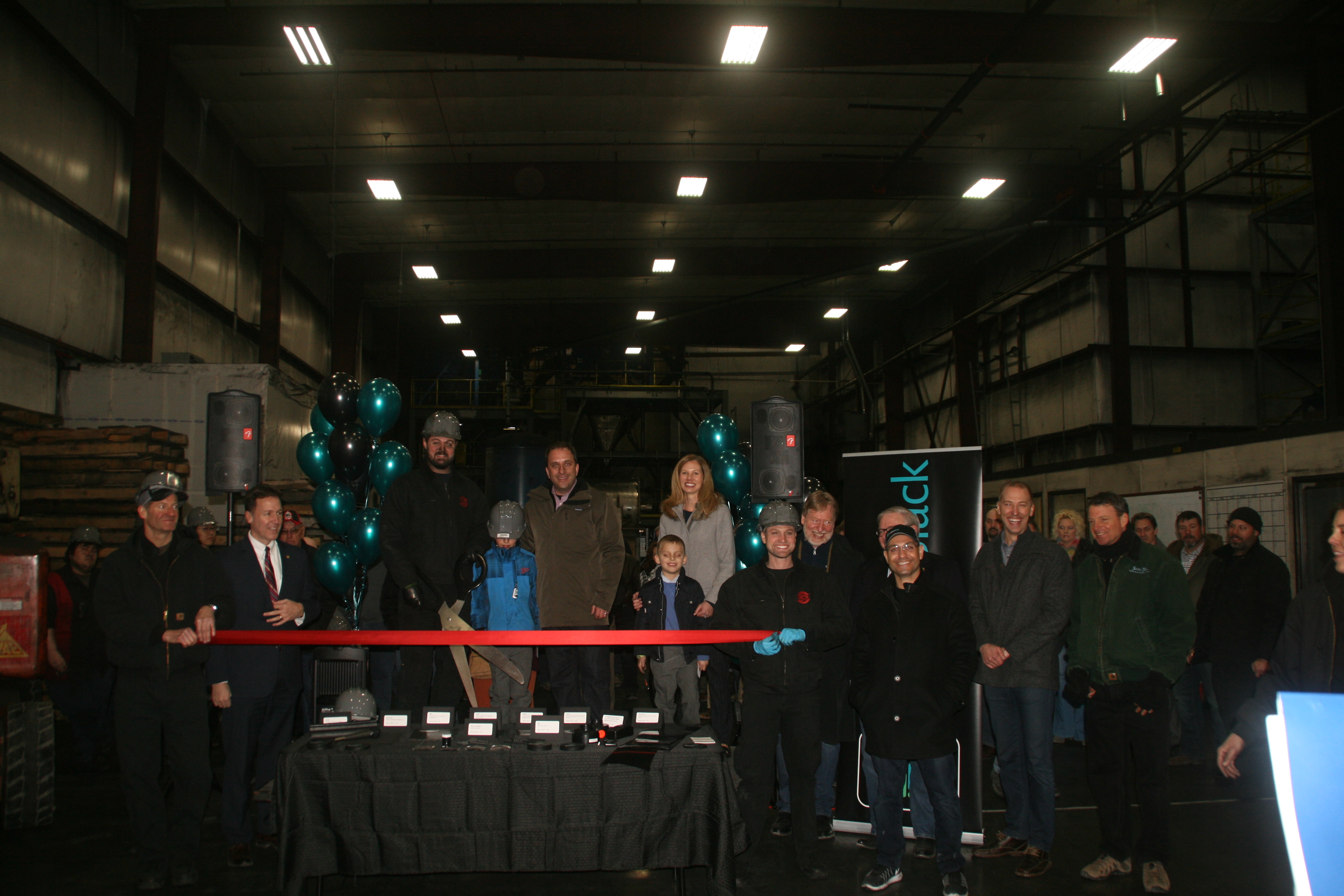By Kay Wilson
The Maryville community of industry leaders, government officials and citizens attended a facility tour, February 3, of the newly-opened Maryville Carbon Solutions located on Leigh Wilson Industrial Road.

Nate Murphy, vice president of engineering and technology at Bolder Industries, wields the official scissors while to his right stands Tony Wibbeler, CEO, with his wife, Leslie Wibbeler, and sons, Joseph and Henry. Ken Dunn, director of sustainability, and Will Drucker, director of sales, held the ribbon. Robert Fenwick Smith, Bolder executive director of the board, is to the right of Leslie Wibbeler.
The manufacturing plant is operated by Bolder Industries and is processing scrap passenger tires into several renewable products including the signature exclusive Bolder Black, a pelletized carbon black product. The beginnings of the plant date back several years when a group of retired Monsanto engineers began to extrude carbon black and oils from shredded tires. The plant personnel floundered with the process at the time and the company went bankrupt.
Tony Wibbeler, CEO of Bolder Industries, along with capital investors, took the vacated plant, retooled the machinery and through research and development at the Northwest’s CIE building created an improved carbon black product that allows for a low environmental impact while creating several marketable products. Now, the plant is operational with key individuals in charge of aspects such as sustainability and quality control.
There are several management positions still to be filled at the plant including a plant manager, pyro engineer, lift operator and janitor. Interested individuals should go online to complete an application at indeed.com/cmp/Waste-to-Energy-Partners?previewLocale=en_US.
Bolder Black, which is in nearly every rubber and black plastic product, is created by melting shredded tires in a combustion-free machine. This process breaks down the hydrocarbon chains into a superheated gas leaving the solid carbon product, a reclaimed oil and a gas. All three products are a revenue stream for the facility. Other income items include the tires, rubber feedstock and the steel extracted from the tires before they are melted.
The plant is built to handle 2 million tires per year. Each tire will be broken down into the following: Bolder Black, 33 percent; oil, 40 percent; steel, 15 percent; and gas, 10 percent. Tires presently create environmental challenges with 300 million waste tires disposed annually in the US. Currently, there are few healthy reuses for scrap tires.
Patagonia is one company that has discovered a use for the new Bolder Black. It’s being used on the closures of their wet suits. The sugar beet industry is utilizing Bolder Black in its harvesting machines as the substance makes an ideal beet paddle that is strong and flexible. Car roof carriers are another product that uses Bolder Black.




Facebook Comments